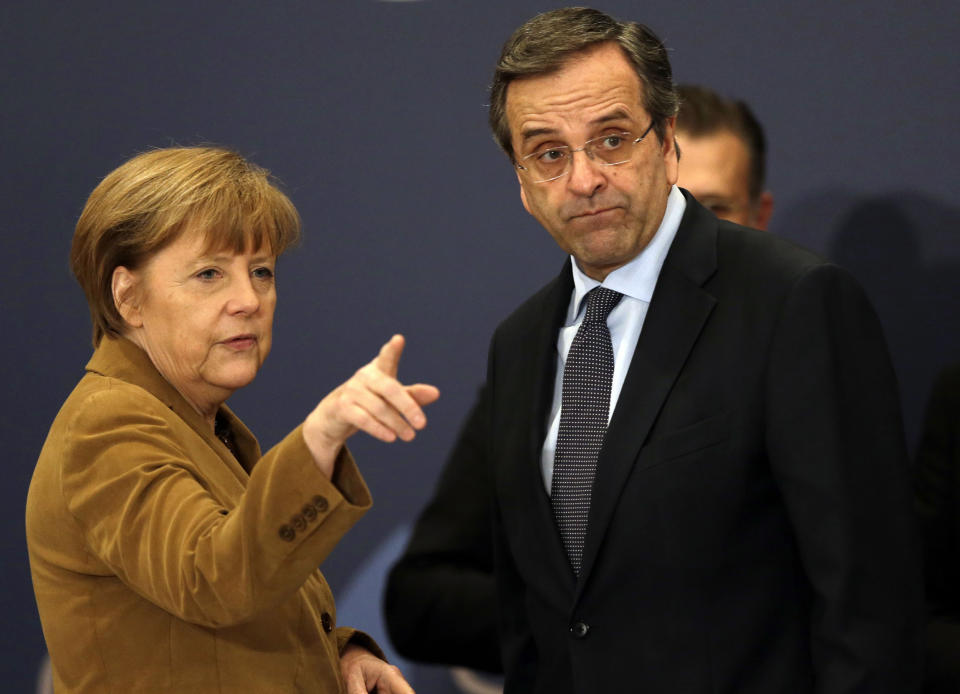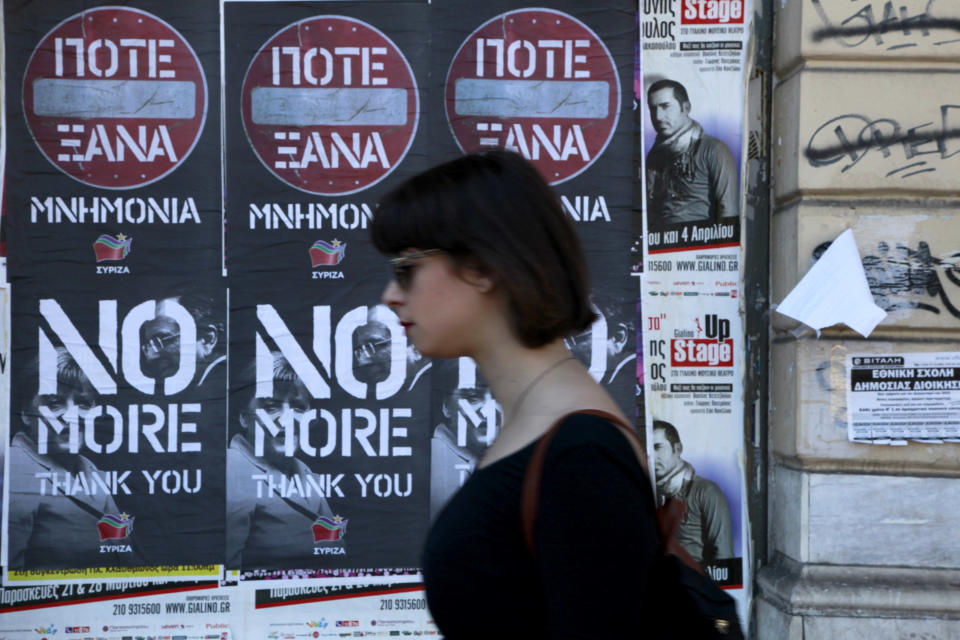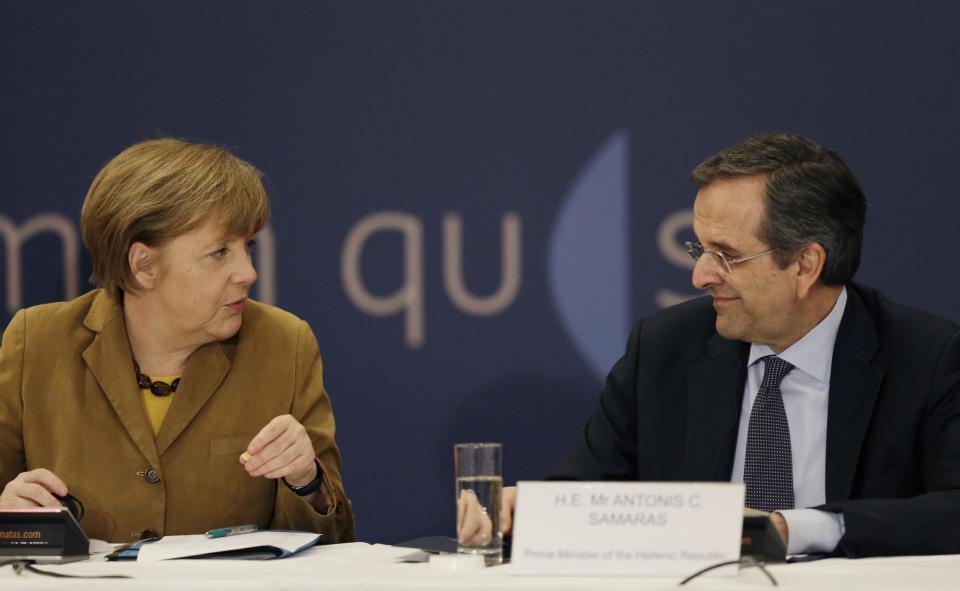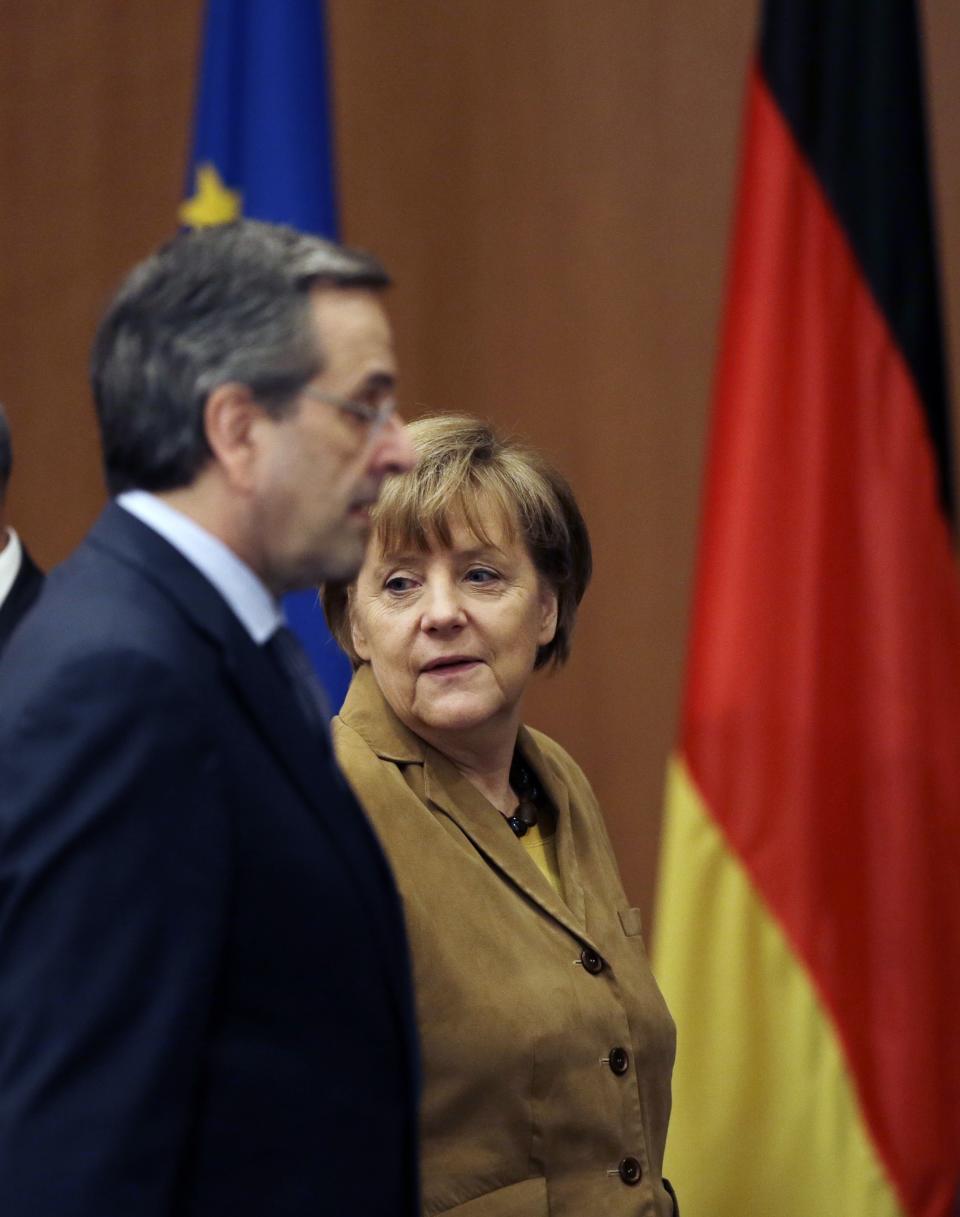Merkel visits Greece after bond success
ATHENS, Greece (AP) — German Chancellor Angela Merkel arrived in Athens for a brief visit on Friday, amid a wave of optimism among Greek and European officials over the country's successful return to bond markets this week.
But the German leader remains a contested figure in Greece, having been among the most vocal supporters of painful austerity policies — and security was tight. Police banned protests across most of central Athens, and deployed some 5,000 officers across the capital.
Greece on Thursday tapped the bond markets for the first time since 2010, a milestone in its recovery. But the same austerity measures that have helped stabilize public finances have caused pain for Greeks. The economy has shrunk by about a quarter during the crisis and unemployment is near 27 percent.
"I believe that after all these necessary reforms have been carried out — with more remaining — that Greece will have more opportunities than difficulties," Merkel said at the start of her visit, which will last just seven hours.
She held talks with fellow conservative Prime Minister Antonis Samaras, who is facing opposition party demands to hold early elections along with next month's vote for the European Parliament. They are expected to discuss a German initiative to support small Greek businesses, as well as future negotiations on Greek national debt relief.
The two leaders met a group of Greek entrepreneurs who have created Internet startups.
"I don't know if your friends will talk to you after you tell them that you met the German chancellor," Merkel joked.
Unions and the left-wing main opposition party, Syriza, are backing protests planned outside the cordon set up by police.
"I don't think anyone really wants Merkel to come. What's the point? I would also prefer it if she had not come," said Athens resident Marina Karfaoglou, sitting at a small cafe with a large replica euro-coin hanging at the entrance.
During a visit in 2012, the German chancellor had been greeted by mass anti-austerity protests that turned violent. Security this time was also tightened further after a powerful car bomb exploded early Thursday outside the Bank of Greece, causing damage but no injuries.
Syriza leader Alexis Tsipras in a newspaper article criticized the cordon, saying Merkel would not get a sense of the impact of the austerity measures she supported.
"I encourage her to visit a hospital and witness the third world conditions ... or a school where teachers try to cope with underfed children," he wrote.
Meanwhile, Fitch ratings agency warned the successful bond issue did not mean an end to Greece's financial problems. In a report Friday it said the issue showed the country's progress but doesn't mean it will be able to finance itself on its own when the bailout program ends later this year. It also highlighted risks that political support for reforms might wane.
___
Nicholas Paphitis in Athens and Geir Moulson in Berlin contributed







